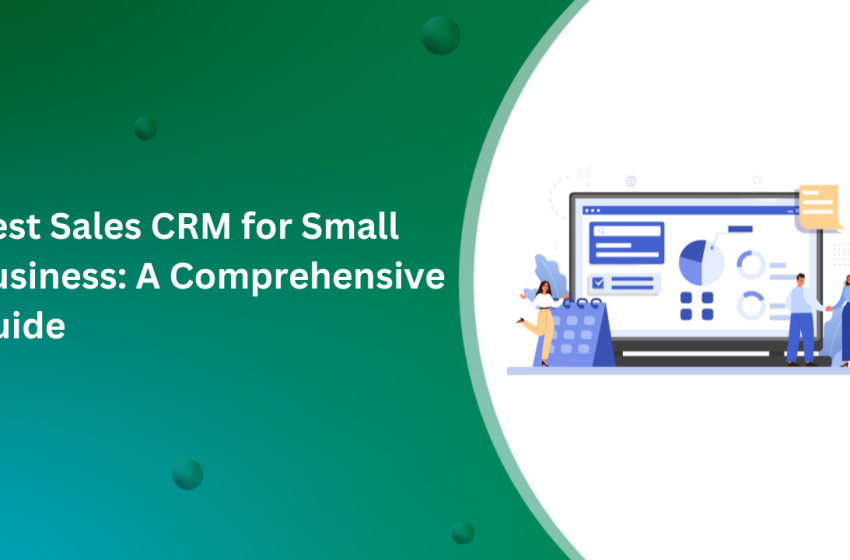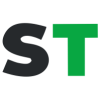Best Sales CRM for Small Business: A Comprehensive Guide

In today’s competitive market, small businesses need every advantage they can get to stay ahead. One of the most powerful tools in a business owner’s arsenal is a Customer Relationship Management (CRM) system. But with so many options available, how do you choose the best sales CRM for your small business? This guide will help you navigate the CRM landscape and find the perfect fit for your needs.
What is a Sales CRM?
A Sales CRM is a software solution that helps businesses manage their interactions with current and potential customers. It organizes customer information, tracks sales activities, and automates repetitive tasks, allowing your sales team to focus on what they do best: selling.
For small businesses, a CRM system can be a game-changer. It can streamline your sales process, improve customer satisfaction, and ultimately drive revenue growth. But not all CRMs are created equal, especially when it comes to the needs of small businesses.
Read also: Best CRM for small businesses
Why Small Businesses Need a Sales CRM
Small businesses often operate with limited resources, which means efficiency is key. A Sales CRM helps by:
-
Centralizing Customer Data: All customer information is stored in one place, making it easy for your team to access and update records.
-
Improving Communication: A CRM ensures that everyone on your team is on the same page, reducing the chances of miscommunication or missed opportunities.
-
Automating Tasks: From sending follow-up emails to scheduling appointments, a CRM can automate many of the repetitive tasks that take up your team’s time.
-
Tracking Performance: A CRM provides insights into your sales process, helping you identify what’s working and where there’s room for improvement.
Read also: sales force management
Features to Look for in a Sales CRM
When choosing a CRM for your small business, there are several key features to consider:
-
Ease of Use: The CRM should be intuitive and easy to use, even for team members who are not tech-savvy. A steep learning curve can hinder adoption and reduce the effectiveness of the tool.
-
Customization: Every business is different, so it’s important to choose a CRM that can be customized to meet your specific needs. This might include custom fields, pipelines, or workflows.
-
Integration: Your CRM should integrate with the other tools you use, such as email marketing software, accounting systems, and customer support platforms. This ensures a seamless flow of information across your business.
-
Mobile Access: With more salespeople working remotely or on the go, mobile access is essential. A good CRM should have a mobile app that allows your team to manage their tasks and access customer information from anywhere.
-
Scalability: As your business grows, your CRM should be able to grow with you. Look for a solution that can handle an increasing number of users and customers without losing performance.
-
Affordable Pricing: Small businesses need a CRM that fits within their budget. Look for solutions that offer transparent pricing and flexible plans that allow you to start small and upgrade as needed.
Read Also: WhatsApp Automation
Top Sales CRMs for Small Businesses
Now that we know what to look for in a Sales CRM, let’s explore some of the best options available for small businesses.
Overview: Salestown CRM is an excellent choice for small businesses, offering a user-friendly interface and a wide range of features tailored to streamline sales processes. Designed with small business needs in mind, Salestown CRM helps you manage leads, track sales activities, and gain valuable insights into your business performance. It integrates seamlessly with popular tools, making it an ideal option for businesses looking for a comprehensive CRM solution.
Key Features:
-
Free for unlimited users
-
Email tracking and notifications
-
Pipeline management
-
Integration with over 500 tools
Pros:
-
Easy to use
-
Excellent free plan with essential features
-
Scalable as your business grows
Cons:
-
Some advanced features require paid upgrades
2. HubSpot CRM
Overview: HubSpot CRM is a popular choice among small businesses due to its robust features and free plan. It offers a user-friendly interface and integrates seamlessly with other HubSpot tools, making it a great option for businesses that use HubSpot’s marketing or service software.
Key Features:
-
Free for unlimited users
-
Email tracking and notifications
-
Pipeline management
-
Integration with over 500 tools
Pros:
-
Easy to use
-
Excellent free plan with essential features
-
Scalable as your business grows
Cons:
-
Some advanced features require paid upgrades
3. Zoho CRM
Overview: Zoho CRM is a versatile and affordable option that caters to businesses of all sizes. It’s highly customizable, allowing you to tailor the CRM to your specific needs. Zoho also offers a wide range of integrations and additional tools, such as email marketing and project management.
Key Features:
-
Sales automation
-
Customizable dashboards and reports
-
AI-powered sales assistant
-
Social media integration
Pros:
-
Affordable pricing with a free plan for up to 3 users
-
Highly customizable
-
Extensive integration options
Cons:
-
The interface can be overwhelming for new users
Read also: CRM For Doctor
4. Pipedrive
Overview: Pipedrive is designed specifically for sales teams, with a focus on simplicity and usability. It’s a visually appealing CRM that helps you manage your sales pipeline effectively. Pipedrive is ideal for small businesses that want a straightforward CRM without unnecessary complexity.
Key Features:
-
Visual sales pipeline
-
Email integration and tracking
-
Activity reminders and notifications
-
Customizable stages and fields
Pros:
-
Simple and intuitive interface
-
Strong focus on sales processes
-
Affordable pricing
Cons:
-
Limited features outside of Sales management
-
No free plan, only a 14-day trial
5. Salesforce Essentials
Overview: Salesforce Essentials is the small business version of Salesforce, one of the most well-known CRMs on the market. It offers a powerful set of tools for managing customer relationships, with the flexibility to customize the system to your needs.
Key Features:
-
Contact and account management
-
Opportunity tracking
-
Email integration
-
AI-powered analytics
Pros:
-
Feature-rich with powerful customization options
-
Scalable as your business grows
-
Access to the Salesforce AppExchange for additional tools
Cons:
-
Can be expensive for small businesses
-
Steeper learning curve compared to other CRMs
6. Insightly
Overview: Insightly combines CRM and project management in one platform, making it a great option for small businesses that need to manage both sales and projects. It’s known for its user-friendly interface and robust reporting features.
Key Features:
-
Contact and lead management
-
Workflow automation
-
Project management tools
-
Email integration with tracking
Pros:
-
Combines CRM and project management
-
Easy to use
-
Good value for money
Cons:
-
Limited customization options
-
Some features require higher-tier plans
Read Also: Objective of CRM
How to Choose the Right CRM for Your Business
Choosing the right CRM for your small business depends on your specific needs and budget. Here are a few steps to help you make the decision:
-
Identify Your Needs: Start by listing the features that are most important to your business. Do you need a CRM that’s heavy on sales automation, or do you need one that integrates well with your existing tools?
-
Set a Budget: Determine how much you’re willing to spend on a CRM. Remember that some CRMs offer free plans, which can be a good starting point for small businesses.
-
Test the Options: Most CRMs offer free trials or demos. Take advantage of these to test the software and see if it’s a good fit for your team.
-
Consider Future Growth: Choose a CRM that can grow with your business. You don’t want to outgrow your CRM in a year and have to go through the hassle of switching to a new system.
-
Read Reviews and Get Recommendations: Look for reviews from other small businesses in your industry. Their experiences can provide valuable insights into how well a CRM might work for you.
Read also: CRM in service sector
Conclusion
The right Sales CRM can be a powerful tool for small businesses, helping you manage customer relationships, streamline your sales process, and ultimately drive growth. By considering your specific needs, budget, and future goals, you can find a CRM that fits your business perfectly. Whether you choose Salestown CRM, HubSpot, Zoho, Pipedrive, Salesforce Essentials, or Insightly, each of these CRMs offers a unique set of features designed to help small businesses succeed.
Read More:

